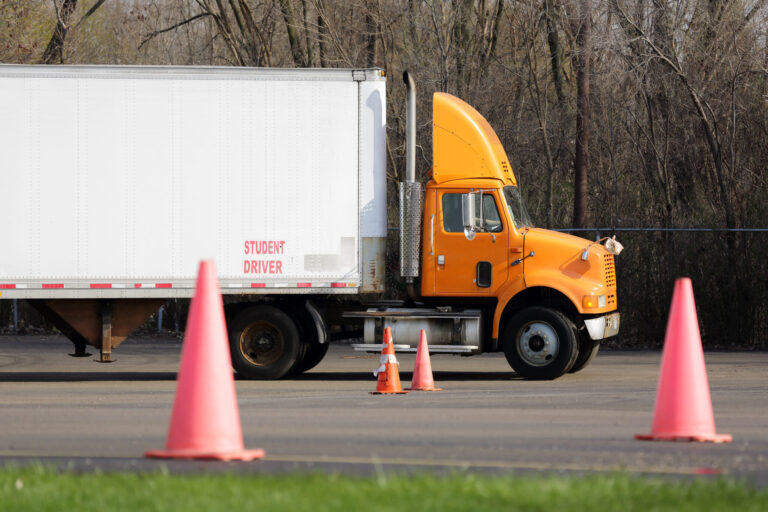WASHINGTON — The Federal Motor Carrier Safety Administration Wednesday released an interim final rule that calls for a two-year delay in implementation of the agency’s December 8, 2016, final rule “Minimum Training Requirements for Entry-Level Commercial Motor Vehicle Operators,” more commonly known as the ELDT final rule.
The FMCSA asked for comments on the delay.
The interim final rule extends the compliance date for the rule from February 7, 2020, to February 7, 2022.
The notice, posted in the Federal Register, said the delay in the compliance date would provide the FMCSA additional time to complete development of the Training Provider Registry (TPR), which will allow training providers to self-certify that they meet the training requirements and will provide the electronic interface that will receive and store (ELDT) certification information from training providers and transmit that information to the state driver licensing agencies (SDLAs).
The FMCSA said the extension also provides SDLAs with time to modify their information technology systems and procedures, as necessary, to accommodate their receipt of driver-specific ELDT data from the TPR.
The FMCSA said it was delaying the entire ELDT final rule, as opposed to a partial delay as proposed, because of delays in implementation of the TPR that were not foreseen when the proposed rule was published.
The Federal Register notice was not a surprise to the trucking industry because the FMCSA in late November announced it was preparing the notice, but did not know when it would be published.
“Following a careful review of the public comments regarding the Entry-Level Training (ELDT) rule, FMCSA is extending the rule’s implementation for two years,” said an FMCSA spokesperson in November. “This extension is reflective of the agency’s continued efforts to develop a secure and effective electronic trainer provider registry for the new rule. The Agency remains committed to making the implementation of the rule as efficient and effective as possible.”
“While news of the full delay is not unexpected, it is very disappointing to the entire commercial vehicle training community as well as safety advocates who have seen this as a critical step towards improving highway safety,” said Commercial Vehicle Training Association President Don Lefeve, who noted that the ELDT rule applies to both interstate and intrastate commercial drivers seeking a commercial driver’s license (CDL). Unlike numerous state laws on commercial driver training that provide exemptions for employers, or have lax training requirements, ELDT requires anyone seeking a CDL to receive formal training, register with the FMCSA, and teach the proper curriculum. “From large organizations to one-man trainers, ELDT will create a training standard that will positively impact every driver responsible for driving an 80,000-pound vehicle on our roadways. Put simply, the ELDT rule is in the interest of everyone’s safety.”
The CVTA has been at the forefront of ELDT outreach and has been working with stakeholders across the industry to increase awareness of the new rule and educate state partners on their role in the process. CVTA members have been piloting various training and reporting requirements since September of 2018 in anticipation of the original compliance date to be best prepared to implement when it does come out.
“CVTA will continue to push for ELDT implementation prior to the 2-year delay. We look forward to working with the FMCSA and all interested parties to speed up implementation and lead outreach to states and industry stakeholders,” added Lefeve.
In the notice Wednesday, the FMCSA said the extension applies to all requirements established in the December 2016 final rule, including:
- The date by which training providers must begin uploading driver-specific training certification information into the TPR, an electronic database that will contain ELDT information;
- The date by which 5DLAs must confirm that applicants for a commercial driver’s license (CDL) have complied with ELDT requirements prior to taking a specified knowledge or skills test;
- The date by which training providers wishing to provide ELDT must be listed on the TPR; and
- The date by which drivers seeking a CDL or endorsement must complete the required training, as set forth in the ELDT final rule.
Comments may be submitted electronically as identified by Docket Number FMCSA-2007-
- Go to www.regulations.gov and follow the online instructions for submitting comments.
The Trucker News Staff produces engaging content for not only TheTrucker.com, but also The Trucker Newspaper, which has been serving the trucking industry for more than 30 years. With a focus on drivers, the Trucker News Staff aims to provide relevant, objective content pertaining to the trucking segment of the transportation industry. The Trucker News Staff is based in Little Rock, Arkansas.







